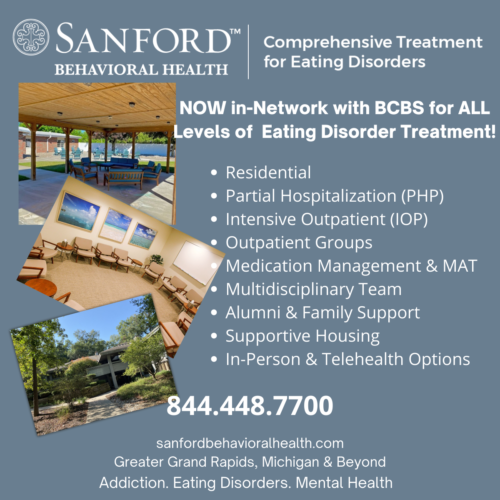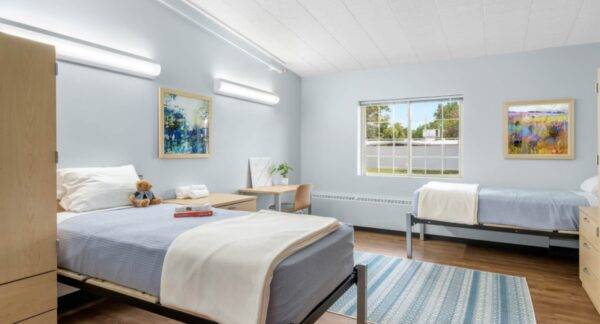Body Acceptance & Diet Culture – A Parent’s Guide

To promote body acceptance, encourage physical activity, especially things you can do as a family.
In October, we celebrate Body Acceptance Week (National Eating Disorders Association) and at Sanford Behavioral Health we support NEDA. In fact, eating disorder programming has shaped the way the entire organization looks at body acceptance and meals. We know that body dissatisfaction is a risk factor in the development of an eating disorder. But it also plays a role in other mental health conditions. Our integrative programming at Sanford includes the HAES (health at every size) philosophy – educating individuals on healthy habits that lead to well-being.
Body Acceptance & Diet Culture
We live in a world where diet culture is the norm, and casual comments about food, eating, and weight are everywhere. Think of bumping into a friend and commenting “Wow, you look great. How did you lose weight? Or saying, “My best friend from work just did a juice cleanse, and she says she has never felt better.” Even saying, “Our family needs to eat healthy after the holiday season, so I’m getting rid of all the junk food.” Sounds like normal, everyday, conversation, right? It’s harmless, right? Maybe not. We know that children exposed to diet culture from an early age are more likely to be weight conscious by 8 years old and more likely to go on a diet by age 12.
The statistics are clear – an early dissatisfaction with weight or shape that leads to dieting significantly increases the chances that an eating disorder will develop.
What is a Parent to Do?
At Sanford Comprehensive Treatment for Eating Disorders, we involve the family in treatment whenever possible. Actually, our Family Program is integral to family education and recovery.
Following are tips to follow to create body acceptance in the home:
- Carefully examine your own attitudes about weight and health (the two are not as connected as you may think).
- Be careful about engaging in any fad diets. If the changes you are making to eating patterns are not sustainable, it is a diet and not a lifestyle change.
- Do stock your cupboards and refrigerator with a wide variety of foods and allow your children to make their own choices.
- Stop weighing yourself or talking about your own weight – try to find your own body acceptance.
- Encourage physical activity, especially things you can do as a family.
- Body acceptance begins at home. NEVER suggest a child needs to lose weight.
- Do not allow well-meaning others to be critical of your child’s body type. A pre-pubescent girl should be expected to gain 10 pounds a year, and sometimes the weight increase comes before height catches up.
- Genetics plays a huge role in adult size and shape, so your child may be predisposed to be taller or heavier than some of her peers.
- Even physicians are immersed in diet culture. They have been trained to wage war on the “obesity epidemic,” so well-meaning physicians may encourage dieting and overlook dangerous weight loss trends in children.
- Take the NEDA pledge. I will treat my body with respect and kindness.
And be sure you value and comment on your child’s positive qualities and attributes, NOT their appearance. Your child needs to feel secure and believe they will be loved no matter what.
For More Information on Parenting and Eating Disorders
Parenting & Eating Disorders – Body Positivity at Home






